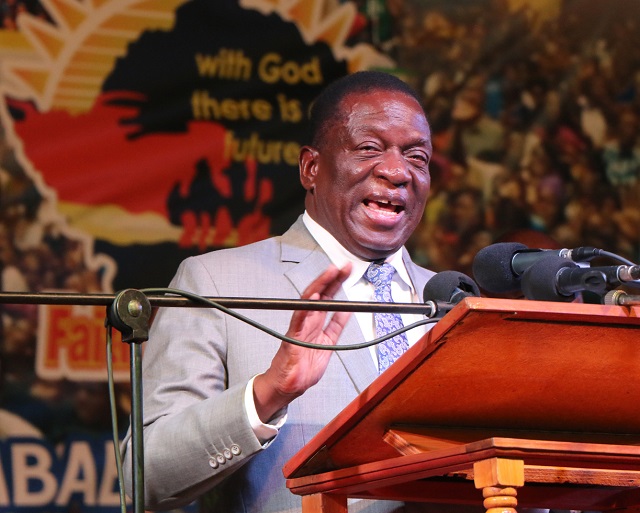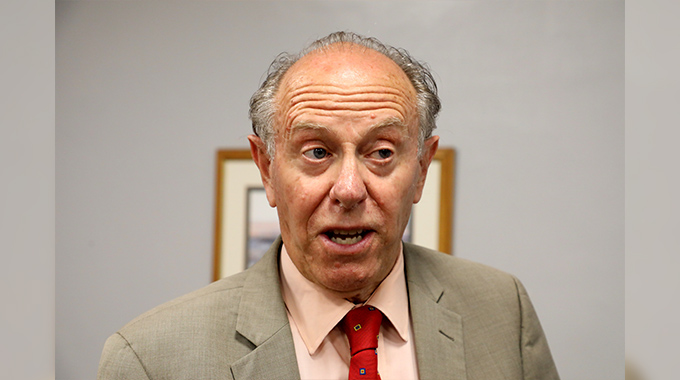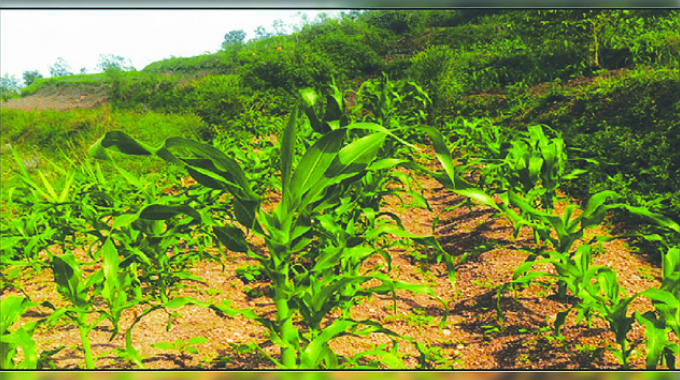Metanoia beckons for Zim

Christopher Farai Charamba
Metanoia is an ancient Greek word that simply means to change one’s mind. The word has been applied to different schools of thought and taken on a more nuanced meaning in each.
In theology, it is described as a transformative change of heart or spiritual conversion. A prime biblical example would be the conversion of Saul to Paul on the road to Damascus.
Many would be familiar with this incident where a man who persecuted the early Christians, encountered Jesus and would go on to become one of more famous apostles and teachers of Christianity. In his teachings, Paul explained that metanoia was repentance and expressing sorrow for one’s actions as this would lead to the full conversion.
Other notable cases of metanoia are those of Malcolm Little to Malcolm X and Cassius Clay to Muhammed Ali. Their religious transformation was accompanied by a change in lifestyle, principles and thinking which impacted the ways in which both men viewed and interacted with the world. Among other things this contributed to the two men becoming prominent activists for social justice in what was a racially divided and oppressive USA.
Psychology is another discipline that makes use of the term metanoia. In short, it refers to a conversion of the human personality from troubled place, such as a nervous breakdown or midlife crisis, to a more positive psychological position.
A metanoia in psychology is seen as a healing process and character strengthening. Petrushka Clarkson noted that involves the forsaking of the old scripted and made up self for a more open one.
Zimbabwe finds itself with a somewhat different administration at the helm of the State and one might argue that it, the government, has gone through its own metanoia, a political metanoia. President Mnangagwa and his team have come out with a distinctive message to Zimbabweans and to the world, from that of his predecessor.
This new dispensation, as it has come to be referred, has branded itself as taking a business unusual approach. In more ways than one, they have made changes to the structure of the government, a leaner cabinet for example, and also the message that they are carrying, Zimbabwe is open for business.
There is a marked difference from some of the ideological and policy positions of old as the government courts foreign investors. As part of their guarantees, President Mnangagwa has promised that the forthcoming elections will be free, fair and transparent.
Based on the rhetoric alone, it is fair to say that the government’s metanoia has come. But words are fleeting and it is rather the actions on which conclusive judgements can be made. What the administration does will give a better meaning to the words new dispensation.
As such there are a variety of issues which the administration should see to addressing to make what it says concrete.
Policies around ease of doing business are one such area. It is nice to know that Zimbabwe is open for business but its better to understand what this actually means particularly for the local investor and business person.
One believes that the government is well aware of the barriers to entry particularly for new business and will imminently be addressing these, creating an improved environment for capital to flow in and businesses to operate.
Another of the key messages to be scrutinised is around free and fair elections. The government understands that the transparent conduct of these polls is imperative to facilitating reengagement with the international community, who are already keen to work with Zimbabwe, noted by the different envoys who have made their way to the country in recent months.
President Mnangagwa has assured those who wish to come and observe the elections that should they apply and meet the requirements they will be free to do so.
A date for the poll has yet to be set but political parties have already begun campaigning as the administration has stated that they may be held sooner than expected.
While it is acceptable for the president to make promises on the upcoming polls, as the head of state, it is in fact the role of the Zimbabwe Electoral Commission, as the independent body with the specific mandate, to give those assurances meaning through its actions.
Zec now has a new chairwoman, Justice Priscilla Chigumba, who was sworn in last week.
All eyes are on her and her team to ensure the veracity of the 2018 harmonised elections. To that end, there are issues that will need clarity and organisation.
A major area of concern is around the voters’ roll. The biometric voter registration process is coming to a close. ZEC will then take time to finalise the voters’ roll to be used in this year’s elections.
It is then expected that the roll will then be availed timeously for inspection by political parties and the public at large. This should be a simple task for the electoral body but is an important one as the availability of the roll has been a contentious issue in previous elections. Should they fail in this task it sets a bad tone and there is likely to be an uproar from various participants.
Zec should also look to the regularisation of the media. The national broadcaster has been accused by opposition political parties of biased reporting and coverage of campaigns.
Ministry of Information, Media and Broadcasting Services Permanent Secretary George Charamba said in an interview recently that during an election, control of the media, particularly the national broadcasters, is handed over to the Zec.
As such, the electoral body should set out some basic rules pertaining to election coverage as they are the referee in this matter. Access to information and the ability to disseminate one’s message are a cornerstone of the democratic process and the media plays a critical role in both.
Zimbabwe’s multiparty democracy is blessed with a plethora of political options and one does not expect ZBC to broadcast all of their campaign events, however, parties should not feel that they do not have fair access to the media, particularly the state broadcaster.
One problem area that Zec should be mindful of is that of intimidation and coercion. There are already unconfirmed reports on social media of people being asked to submit their voter registration slips for inspection and allegations of intimidation and violence by members of political parties.
On the first issue, it is ZEC’s responsibility to fully educate voters as to the processes around elections, what they can and cannot do. Through the use of the media and other available channels, ZEC should dedicate a significant amount of energy to educating people around their electoral rights. Repetition is important and so ZEC should never tire in its duty to inform and educate the public.
ZEC should also work closely with the police and encourage people to report any incidents of violence and or intimidation and coercion. Those that are accused of such acts should be investigated and brought to book should they be found to have committed a crime.
A stern hand is required here as the electoral body should show that they will not tolerate political parties compromising the integrity of the country’s democracy.
If ZEC can manage to do these things then it will give credence to the rhetoric on free, fair and transparent elections. This will help ensure that Zimbabwe is no longer viewed as a pariah state but rather that the metanoia has truly transpired and the country is on a different course.











Comments